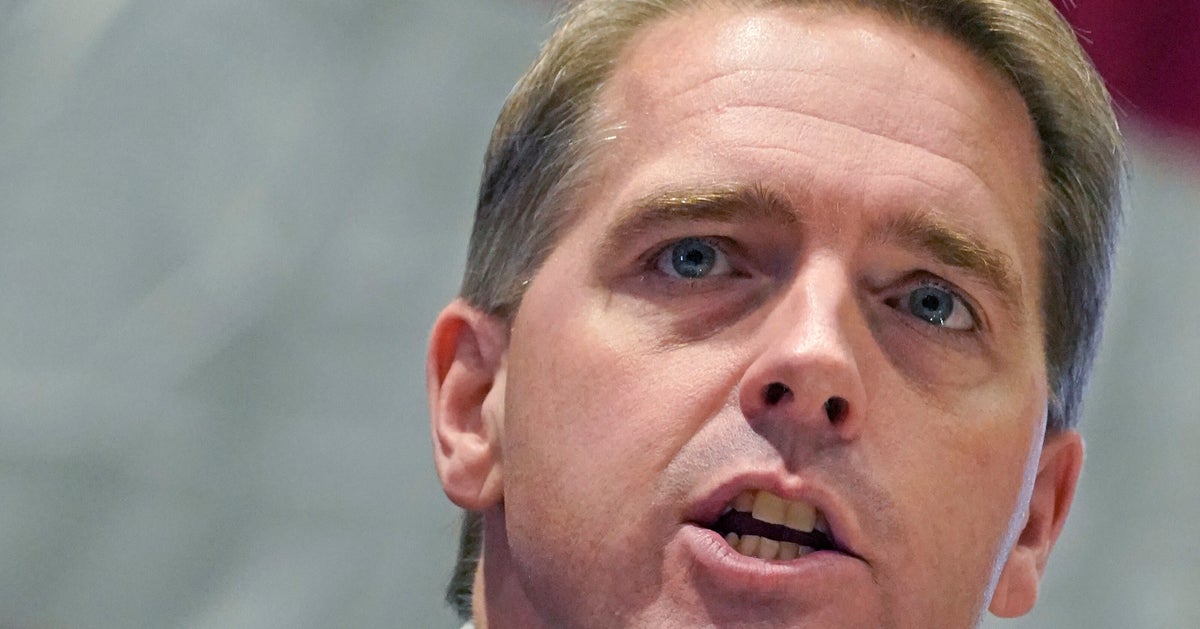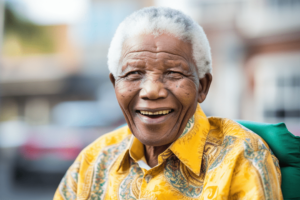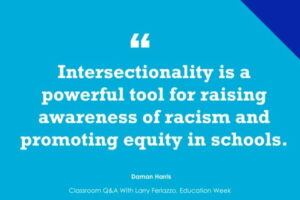
Scott Jennings Slammed For Calling A History Question A ‘Gotcha’
Conservative CNN pundit Scott Jennings was slammed online after he recently suggested that Education Secretary Linda McMahon was asked a “gotcha” question about one of the worst instances of racial violence in American history during a congressional hearing.
During a Wednesday segment of CNN’s “News Night with Abby Phillip,” panelists discussed the hearing earlier that day in which McMahon was asked questions about the Trump administration’s efforts to ban what it considers to be “illegal DEI practices” at K-12 public schools.
In January, Trump ordered U.S. schools to stop teaching what he views as “critical race theory.” And in April, the Trump administration ordered K-12 public schools to certify that they are ending diversity, equity and inclusion practices as a condition for receiving federal money. (Federal judges have since paused the administration’s directives to withhold federal funds in three separate rulings.)
At one point in Wednesday’s hearing, Rep. Summer Lee (D-Pa.) asked McMahon whether lessons on the Tulsa Race Massacre would be considered “illegal DEI.”
McMahon responded: “I’d have to get back to you on that.”
Lee pressed further, asking McMahon if she knew what the Tulsa Race Massacre was. McMahon, a former pro wrestling executive with a slim record in education policy, refused to give a direct answer.
“I’d like to look into it more and get back to you on it,” McMahon said.
The Tulsa Race Massacre is considered to be among the worst racial terror attacks in U.S. history. In 1921, a white mob violently rampaged through the Greenwood District in Tulsa, Oklahoma, an area of Black-owned businesses known as Black Wall Street, and burned down and destroyed much of the area, including homes and businesses. It’s been estimated that the white armed rioters killed as many as 300 Black residents.
McMahon had also evaded Lee’s questions surrounding her familiarity with civil rights trailblazer Ruby Bridges, who at 6 years old faced hateful white protesters when she became the first Black student to attend a racially segregated school in Louisiana.

Alvin C. Krupnick Co./Library of Congress via AP
Host Abby Phillip said on “NewsNight” that McMahon’s inability to answer questions about U.S. history made her seem unprepared or even “unqualified” for her position leading the Education Department.
But Jennings brushed off the exchange, saying that he only cares about what McMahon is doing to “close the Department of Education.”
“I don’t care how many books she’s read, I don’t care what answers to gotcha questions she had,” he said.
People on X, formerly Twitter, slammed the conservative pundit for calling Lee’s questions “gotcha questions.”
“If you think things like Ruby Bridges and the Tulsa Massacre are ‘gotcha questions,’ then that is precisely the evidence we need that these things need to be taught in school,” one X user wrote.
Jennings’ stance exposes “a dangerous and far too common belief that confronting and acknowledging America’s racist past is somehow separate from American history,” said Portia Allen-Kyle, a civil rights attorney and interim executive director at the racial justice organization Color Of Change.
“Black history is American history, and the questions about Ruby Bridges and the Tulsa Race Massacre aren’t niche events that no one knows; these are significant political events that changed the trajectory of our country and the course of history,” she said.
“Labeling historic events like the Tulsa Race Massacre or Ruby Bridges’ historic integration as ’gotcha questions’ is part of a broader neo-segregationist agenda that treats the lived experience of Black people as political provocation.”

The erasure of Black people’s experiences in U.S. history is dangerous.
“Before they graduated to banning diversity, equity and inclusion, they were banning Black history and AP African American Studies,” Allen-Kyle said. McMahon evading the question was “intentional” and “dangerous,” she said, adding: “This administration is making clear that its vision of America doesn’t include an honest account of Black power, resilience or resistance. Calling our history ‘illegal DEI’ is a smokescreen to justify whitewashing the past.”
Allen-Kyle said that McMahon’s refusal to directly respond to Lee’s questions either showed a lack of honesty or a “disqualifying level of ignorance” for her job.
“Neither is acceptable from the person in charge of national education policy,” she said.
Shaun Harper, a professor of education, business and public policy at the University of Southern California, called out policymakers for being “largely unfamiliar with the range of ways that Black people have been and continue to be terrorized in America” and said they “create and enact perceivably colorblind policies that repeatedly fail to respond to that terrorism and the generational trauma and racial disparities that accompany it.”
“A congressional query about a significant catastrophic moment in American history is not a ‘gotcha question’ for a White House Cabinet member,” Harper said, later adding: “McMahon seems to believe it is OK for other Americans to be as racially illiterate as she is. It is not OK because it leads to harmful, racially unresponsive policymaking.”
Teaching history in schools is crucial. History provides a “guiding light.”
Harper, co-author of 2024 book “The Big Lie About Race in America’s Schools (Race and Education),” emphasized that students in the U.S. often learn about certain historical events, such as the Boston Tea Party and the American Revolution — “moments that mostly white textbook makers, standardized test makers and educators deem worthy of inclusion in the curriculum,” he said.
“When they sanitize slavery and altogether leave out tragedies like the Tulsa Race Massacre, miseducated students graduate from schools incapable of answering questions about significant moments in our nation’s history that pertain to Black Americans,” he said.
Allen-Kyle warned that schools censoring Black history — which is American history — will create “a society incapable of reckoning with its past and unprepared to build a just future.”
“History isn’t just what happened — it’s often a guiding light to what we’re witnessing in the present and how we can use those learnings to build a future that doesn’t repeat the same mistakes,” she later continued, before adding: “Teaching about Tulsa and Ruby Bridges helps students understand the full story of America: the harm caused, the courage shown, the systems still in need of change.”
“Fighting for truthful education is fighting for a future where every child sees their history, their dignity, and their possibility reflected in the classroom,” she said.
Source link


